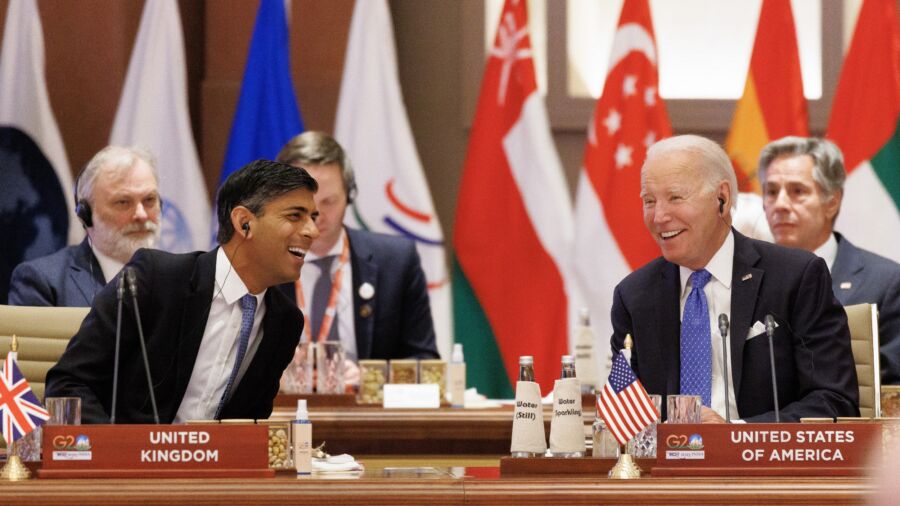Group of 20 leaders gathered in New Delhi, India, for the second day of the G20 Summit. The world leaders were able to reach an agreement for a joint statement and several sideline agreements.
The parties in the summit agreed to adopt a consensus statement that condemned the invasion of Ukraine without mentioning Russia.
Despite objections from Russia and China over references to the Ukrainian conflict, Indian officials confirmed that the leaders reached a compromise on the language in several paragraphs to describe the war in Ukraine.
“We … welcome all relevant and constructive initiatives that support a comprehensive, just, and durable peace in Ukraine,” the declaration said.
“In line with the U.N. Charter, all states must refrain from the threat or use of force to seek territorial acquisition against the territorial integrity and sovereignty or political independence of any state. The use or threat of use of nuclear weapons is inadmissible.”
The following are some takeaways from day two of the summit:
G20 Adds African Union as a Member
The group of the world’s 20 leading economies is welcoming the African Union as a permanent member, a powerful acknowledgment of Africa as its more than 50 countries seek a more important role on the global stage.
President Joe Biden called last year for the AU’s permanent membership in the G20, saying it’s been “a long time in coming.” Indian Prime Minister Narendra Modi welcomed the current AU chair, Comoros President Azali Assoumani, with a hug on Saturday at the G20 summit his country is hosting, saying he was “elated.”
“Congratulations to all of Africa!” said Senegal President Macky Sall, the previous AU chair who helped to push for membership. The AU had advocated for full membership for seven years, spokesperson Ebba Kalondo said. Until now, South Africa was the bloc’s only G20 member.
US, India to Lead Global Biofuels Alliance
The United States, India, and other countries announced the Global Biofuels Alliance.
“Today, on the margins of the G20 Leaders’ Summit, President Biden joined Indian Prime Minister Modi and leaders from Argentina, Brazil, Italy, Mauritius, and the UAE to launch the Global Biofuels Alliance, a partnership to make progress in our shared commitment to deploy cleaner, greener fuels around the world that help meet our decarbonization goals. Leaders from Bangladesh and Singapore also attended as observer countries to the alliance,” the White House said in a statement.
The Alliance will focus on securing the supply of biofuels, ensuring these biofuels remain affordable and are produced sustainably.
The United States, India, and Brazil will lead the Global Biofuels Alliance.
Biden Unveils Infrastructure Project to Connect India, Middle East, and Europe
President Joe Biden and his allies on Saturday announced plans to build a rail and shipping corridor linking India with the Middle East and Europe, an ambitious project aimed at fostering economic growth and political cooperation.
“This is a big deal,” said Biden. “This is a really big deal.”
The corridor, outlined at the annual Group of 20 summit of the world’s top economies, would help boost trade, deliver energy resources, and improve digital connectivity. It would include India, Saudi Arabia, the United Arab Emirates, Jordan, Israel, and the European Union, said Jake Sullivan, Biden’s national security adviser.
The project is also known as the India–Middle East–Europe Economic Corridor (IMEC).
“The IMEC will be comprised of two separate corridors, the east corridor connecting India to the Arabian Gulf and the northern corridor connecting the Arabian Gulf to Europe. It will include a railway that, upon completion, will provide a reliable and cost-effective cross-border ship-to-rail transit network to supplement existing maritime and road transport routes–enabling goods and services to transit to, from, and between India, the UAE, Saudi Arabia, Jordan, Israel, and Europe,” the White House said in a statement.
The Associated Press contributed to this report.
From The Epoch Times


